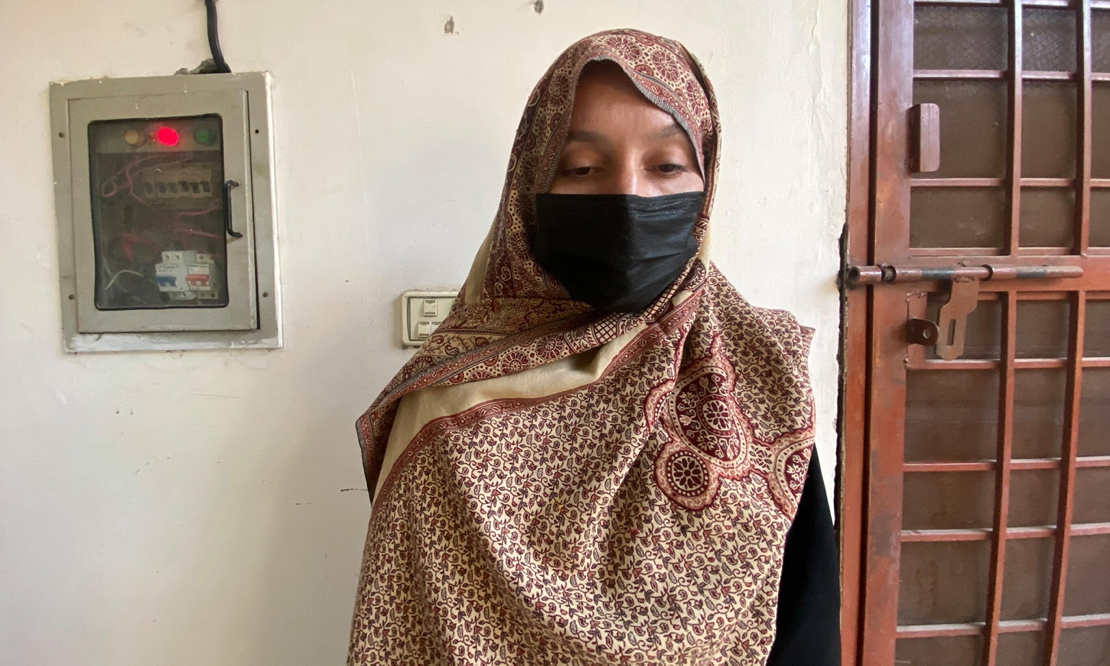Despite a ban on ‘ghag’ forced marriages, a man laid claim to Inteha when she was 12 years old. Now she lives in fear as her family fights for her right to marry the man of her choice
Inteha Bibi’s happiest moment was her engagement last year. Everyone in the family celebrated. Bibi, 25, believed she had not only found a perfect match but also freedom from a centuries-old custom of north-west Pakistan that had hung over her head since she was 12.
But within months, her fiance and his family had broken off the engagement. The outdated and illegal custom, known as ghag – a Pashto word meaning proclamation that allows another man to forcibly claim a woman as his intended wife – had reared its head.
A man called Mahabat Khan was trying to enforce a ghag on Bibi, and made it clear to the community in the tribal Bajaur district where they lived that he still intended to enforce it.
Although Bibi and her family rejected Khan’s proposal when she was a child, she cannot marry anyone else, according to the custom.
“I have no life,” says Bibi. “I am traumatised, I have anxiety and can’t sleep without medication. I am a human, and I have all rights to get engaged and married to whoever I want. I am a woman, not a toy, and I don’t want to be married to someone forcibly.”
Ghag endures in the north-western Khyber Pakhtunkhwa province of Pakistan, which borders Afghanistan. The claim is made by sending a marriage proposal, firing a gun outside the girl’s house or making an open declaration in writing for a girl’s hand without her or her parents’ consent.
In 2019, there was an effort to snatch Bibi from her home. She was in the house with her stepmother when Khan’s brother knocked at their gate with a pistol in his hand “I am here to take Bibi, my sister-in-law. Bibi is my brother’s wife, and he has a claim on her,” he told them.
Bibi recalls: “I started shivering and crying. We shut the door and told him there was no man at home, he should go, and he left.”
The Khyber Pakhtunkhwa parliament banned ghag forced marriages in 2013, making it an offence punishable by up to seven years’ imprisonment or a hefty fine.
Nervous about 2024? We can help.
We’re preparing for one of the most consequential news cycles of our lifetimes. Support independent journalism by helping us reach our $1.5m goal.
Bibi’s younger brother, Sanaullah, a university student in Islamabad, is fighting in the courts for the rights of his sister after the local jirga–a council of tribal elders – failed to act. In 2021, under a court order, Mahabat Khan and his brothers were arrested. Mahabat Khan signed an affidavit, seen by the Guardian, that he would not claim ghag again.
“He lied,” Sanaullah says. “After my sister got engaged in mid-2021, he told her fiance and the family to break off the engagement because he had claimed ghag. He said he would return the amount they invested in the engagement. We left the village and moved to Islamabad, but the man does not stop his evil act.
“My sister has become ill and can’t leave home and does not talk to her sisters, but the evil man takes pride in it,” says Sanaullah. “We live in the medieval dark ages.”
Most cases of ghag are not reported, and when they do reach court, the men are often granted bail after offering apologies. Muhammad Essa Khan, a lawyer, has taken several ghag cases to court. “It is motivating to see that a few people come out and fight against the ghag, but we should raiseawareness. Many people still don’t know ghag is an offence. The government and courts should do more.”
Shahid Mehmood, regional coordinator in Khyber Pakhtunkhwa for the Human Rights Commission of Pakistan, knows of dozens of similar cases, but says people fail to make official complaints.
“We need to make sure the laws are implemented. We have laws against the ghag, ‘honour’ killings, domestic violence. There should be fear of breaking laws but here we rarely see implementation,” Mehmood says.
Anger as Pakistan court frees rapist after he agrees deal to marry his victim
Sanaullah has gone back to the court in Bajaur after the engagement was broken off to demand further action. But he says he has received death threats, and that everyone in the tribal district fears approaching his sister.
In the past, he says, such issues have caused tribal feuds so severe that people have been killed.
“It has been months since the family was forced to break the engagement,” says Sanaullah. “I am fighting for the rights of my sister, but I am disappointed at the system because justice must be seen to be done. It has not been seen in our case.”




